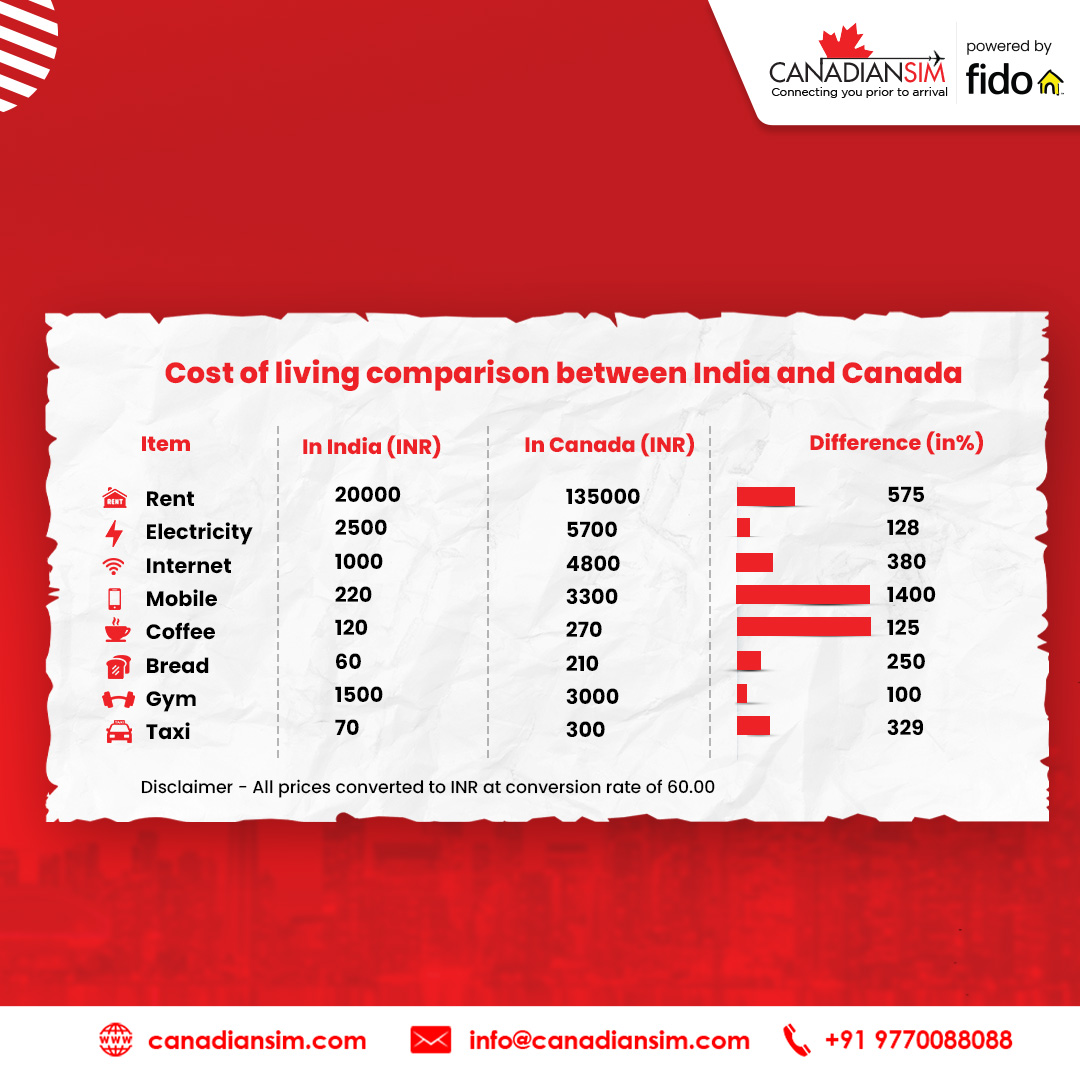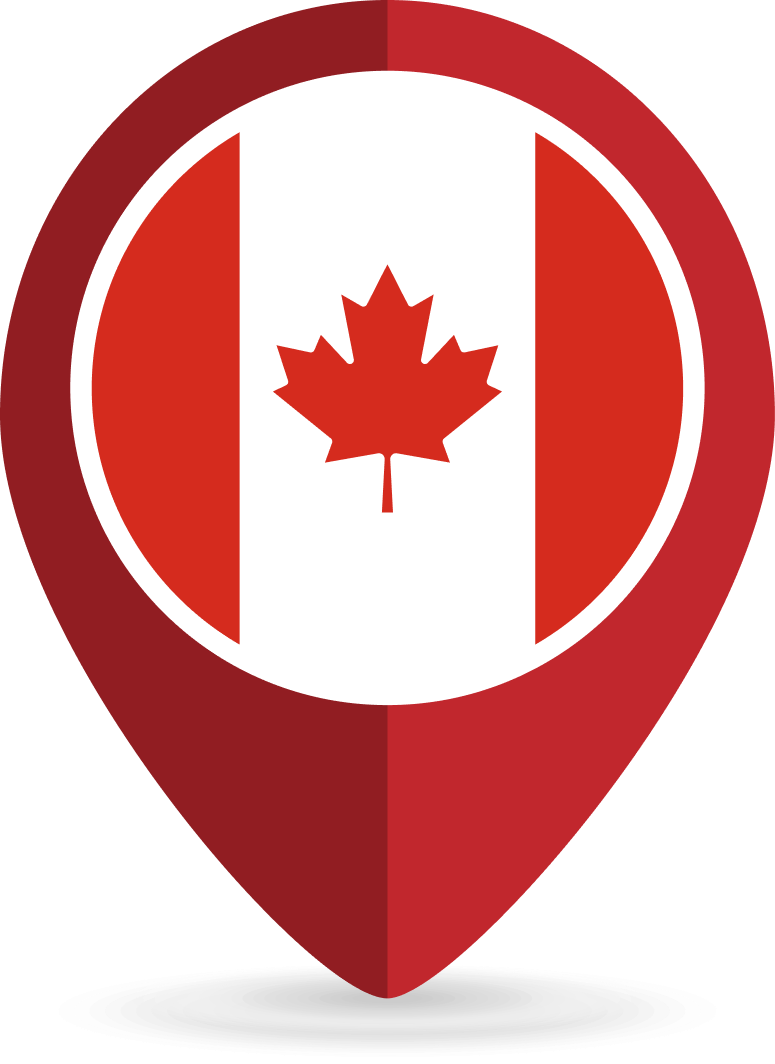Masters in Canada For Indian Students
The Masters program in Canada is a postgraduate course that typically lasts for 1-2 years and can be pursued as an academic or professional degree. In Canada, MS programs are available in two main formats: course-based or thesis-based. However, certain universities offer a combination of both approaches. The average annual tuition fee for graduate studies in Canada ranges from 20,000 CAD to 30,000 CAD. For Indian students, the cost of MS programs in Canadian universities varies between INR 11.11 lakhs to 16.6 lakhs.
To apply for an Masters in Canada, the application deadlines for Canadian universities typically fall between October and January. The admission decisions are usually finalized by May. To be eligible for admission, you will generally need a 4-year bachelor’s degree with an aggregate score ranging from 65% to 86%, an IELTS score of 6.5 or higher, GRE scores (required for top universities), and Letters of Recommendation (LORs).
After completing a Master’s degree in Canada, there are numerous job opportunities available, and the average annual salary can reach 169,000 CAD (equivalent to INR 93 lakhs).
International Students who pursue a master’s degree in Canada are awarded qualifications such as Masters of Science (MSc) or Masters of Arts (MA). Additionally, there are specialized master’s degrees like Master of Fine Arts (MFA), Master of Engineering (MEng), and MBA in Canada, among others. The cost of each type of master’s course varies significantly depending on the chosen institution and location. Various scholarships for Master’s programs in Canada are available to assist students in covering their tuition fees and living expenses.
Top Universities for Masters in Canada
With a wide range of options available, Canada boasts more than 96 public universities offering Masters programs and over 15,000 study programs in total. Among these institutions, several popular universities in Canada are known for their excellent Master’s programs. The table below presents the top universities in Canada for Masters, based on the QS World Rankings of 2023:
| University | Popular Program | Tuition Fees in CAD |
|---|---|---|
| McGill University | MS in Computer Science | 27,010 |
| Western University | MS in Management | 72,000 |
| University of Toronto | MS in Computer Science | 30,120 |
| University of British Columbia | MS in Computer Science | 9,500 |
| University of Alberta | MS in Electrical and Computer Engineering | 8,874 |
| McMaster University | MS in Computer Science | 17,094 |
| University of Montreal | Master of Science in Nursing | 28,119 |
| University of Waterloo | MS in Data Science and Artificial Intelligence | 23,088 |
| Queen’s University | MS in Computing Science | 38,781 |
| University of Ottawa | Ms of Computer Science | 26,871 |
| University of Calgary | MS in Electrical and Computer Engineering | 8,242 |
| Dalhousie University | Master of Computer Science | 10,341 |
| Simon Fraser University | MS Computing Science | 6,075 |
| University of Victoria | MS in Psychology | 7,920 |
| York University | MS Computer Science | 18,825 |
| University of Saskatchewan | MS Finance | 13,575 |
| Concordia University | Master of Computer Science | 28,732 |
| University of Guelph | MS in Computer Science | 13,674 |
| Carleton University | Master of Computer Science | 41,500 |
| University of Manitoba | MS Computer Science | 18,969 |
| University of New Brunswick | MS in Electrical and Computer Engineering | 13,707 |
| Memorial University of Newfoundland | MS in Management | 9,700 |
Popular Masters in Canada
Masters programs in Canada go beyond traditional classroom learning and incorporate various experiential elements such as site visits, projects, and group work. A significant portion of the course credit in many Master’s programs is dedicated to completing a dissertation. When considering pursuing a Master’s degree in Canada, students often prioritize affordability among other factors. However, it is essential to consider additional criteria like program availability, placement opportunities, rankings, and more. The table below showcases popular Master’s programs in Canada for international students, along with some of the top-ranking universities offering those programs:
| Popular Masters Program | University | Estimated Full Tuition Fee (in INR) |
|---|---|---|
| MS Software Engineering | McMaster University, University of Calgary, Western University, Concordia University, University of Regina | 13.35 lakhs- 49.74 lakhs |
| Masters in Nursing | U of T, McMaster University, McGill University, UAlberta, UBC | 0.92 lakhs- 42.47 lakhs |
| Masters in Computer Science | U of T, University of Waterloo, UBC, McGill University, UAlberta | 42.46 lakhs- 54.60 lakhs |
| Masters in Finance | UToronto, UBC, McGill University, Queen’s University, Universite de Montreal | 18.21 lakhs- 48.53 lakhs |
Why Study Masters in Canada?
World-class Universities- Canada is home to several world-class universities, as recognized by the QS World University Rankings of 2023. In fact, eight Canadian universities are ranked among the top 200 in the world.
Specialization Chances- When it comes to specialization options, a Master of Science (MS) degree can be pursued in various fields, including medicine, IT, engineering and technology, finance, management, business administration, architecture, nursing, design, and more.
Affordability- Studying for a Master’s degree in Canada is comparatively more affordable than pursuing an MS in the USA or Australia. The tuition fees in Canada typically range from 30,000 CAD to 55,000 CAD per year, whereas in the USA, the range is from 35,000 CAD to 82,000 CAD annually.
Funding Options- Students pursuing a Master’s degree in Canada have access to a wide range of funding options. Approximately 70% more funds and scholarships are available to students in Canada compared to the USA. Scholarships, fellowships, and other financial assistance programs are commonly offered to support students’ education.
Job Opportunities- Canada provides excellent job opportunities for international students after completing their Master’s degree. According to a survey by the Canadian Bureau of International Education (CBIE), approximately 60% of international students express their desire to stay in Canada after completing their studies.
Immigration and Visa Process- Canada has a welcoming immigration process, making it easier for international students to apply for permanent residency (PR) through programs such as the post-graduation work permit.
Work-while Studying- International students studying in Canada have the option to work part-time while pursuing their studies. This provides an opportunity to gain valuable work experience and earn income to cover living expenses.
Global Leader in R&D- Canadian universities are at the forefront of global research and development (R&D) efforts. They contribute 40% of the R&D work globally, investing over 13 billion CAD. Major research opportunities in Canada are available in areas such as clinical medicine, biology, information and communication technologies, agriculture, fisheries and forestry, earth and environmental sciences, and economics and business.
World-class Universities- Canada is home to several world-class universities, as recognized by the QS World University Rankings of 2023. In fact, eight Canadian universities are ranked among the top 200 in the world.
Specialization Chances- When it comes to specialization options, a Master of Science (MS) degree can be pursued in various fields, including medicine, IT, engineering and technology, finance, management, business administration, architecture, nursing, design, and more.
Affordability- Studying for a Master’s degree in Canada is comparatively more affordable than pursuing an MS in the USA or Australia. The tuition fees in Canada typically range from 30,000 CAD to 55,000 CAD per year, whereas in the USA, the range is from 35,000 CAD to 82,000 CAD annually.
Funding Options- Students pursuing a Master’s degree in Canada have access to a wide range of funding options. Approximately 70% more funds and scholarships are available to students in Canada compared to the USA. Scholarships, fellowships, and other financial assistance programs are commonly offered to support students’ education.
Job Opportunities- Canada provides excellent job opportunities for international students after completing their Master’s degree. According to a survey by the Canadian Bureau of International Education (CBIE), approximately 60% of international students express their desire to stay in Canada after completing their studies.
Immigration and Visa Process- Canada has a welcoming immigration process, making it easier for international students to apply for permanent residency (PR) through programs such as the post-graduation work permit.
Work-while Studying- International students studying in Canada have the option to work part-time while pursuing their studies. This provides an opportunity to gain valuable work experience and earn income to cover living expenses.
Global Leader in R&D- Canadian universities are at the forefront of global research and development (R&D) efforts. They contribute 40% of the R&D work globally, investing over 13 billion CAD. Major research opportunities in Canada are available in areas such as clinical medicine, biology, information and communication technologies, agriculture, fisheries and forestry, earth and environmental sciences, and economics and business.
Applying for Masters in Canada
- Minimum GPA: Applicants should have a minimum Grade Point Average (GPA) of 3.0 out of 4.0 or its equivalent (which is approximately 65-70% in some grading systems). This requirement ensures that applicants have a strong academic background in a related field of study.
- Test Scores (GMAT or GRE): Depending on the program of choice, applicants may need to provide test scores from standardized exams such as the Graduate Management Admission Test (GMAT) or the Graduate Record Examination (GRE). The specific score requirements may vary by program and university. For example, the minimum GMAT score required could be around 550, while the minimum GRE score required might be 140 in the verbal section and 150 in the quantitative section.
- English Proficiency: Non-native English speakers are typically required to demonstrate English proficiency by providing scores from English language proficiency tests such as the Test of English as a Foreign Language (TOEFL) or the International English Language Testing System (IELTS). Equivalent exams may also be accepted. The specific score requirements vary by university and program, but generally, a minimum score is required to ensure adequate language skills.
- Work Experience (Some Programs): Certain Master’s programs, especially in fields like business or management, may require applicants to have 1-3 years of work experience. This requirement helps ensure that applicants have practical industry experience relevant to their chosen field of study.
| University | IELTS Score |
|---|---|
| University of Toronto | 6.5 |
| University of British Columbia | 6.5 |
| McGill University | 6.5 |
| McMaster University | 7.0 |
| Universite de Montreal | 6.5 |
| University of Alberta | 7.0 |
| University of Ottawa | 6.5 |
| University of Waterloo | 7.0 |
| Western University | 6.5 |
| University of Calgary | 6.5 |
Masters in Canada Costs
Studying abroad, including pursuing a Master’s degree in Canada, involves various costs that international students should consider when estimating their financial budgets. These costs can be categorized into pre-arrival costs, tuition fees, and living costs.
Tuition Fees for Masters in Canada for Indian Students
Average annual tuition fee of masters in Canada for indian students is discussed below:
| University | Average Tuition in CAD/Year | Average Tuition in INR/Year |
|---|---|---|
| University of Toronto | 45,110 | 27.3 lakhs |
| University of British Columbia | 40,450 | 24.48 lakhs |
| McGill University | 32,990 | 19.97 lakhs |
| McMaster University | 43,575 | 26.37 lakhs |
| University of Montreal | 46,430 | 28.1 lakhs |
| University of Alberta | 33,530 | 20.29 lakhs |
| University of Ottawa | 30,190 | 18.27 lakhs |
| Simon Fraser University | 39,295 | 23.78 lakhs |
| University of Waterloo | 22,804 | 13.8 lakhs |
| Western University | 17,300 | 10.45 lakhs |
Cost of Living in Canada
The cost of living in Canada is generally considered to be slightly lower than in the USA, with some provinces or states having even lower expenses. It’s important to note that living expenses can vary depending on factors such as the location, lifestyle choices, and personal preferences.
Here are some estimated living expenses in Canada:

CanadianSIM
In addition to considering the general cost of living, international students in Canada may also need to budget for communication expenses, including mobile phone services. One convenient option is to obtain a Canadian SIM card. By acquiring a Canadian SIM card, students can enjoy affordable local calling rates, data plans, and texting services. Having a Canadian SIM card not only enables students to stay connected with friends, family, and fellow students within Canada but also facilitates communication with local service providers, potential employers, and academic institutions.
CanadianSIM offers a convenient and flexible no-contract SIM plan for international students in Canada. The plan includes unlimited Canada-wide calls, allowing students to stay connected with friends, family, and contacts across the country without worrying about additional charges. Additionally, unlimited local and international text messaging (SMS) is included, ensuring seamless communication with both local and international contacts.
With CanadianSIM, there are no set-up fees, making it a hassle-free option for students to get connected. The plan also provides useful features such as Caller ID and Voicemail, enhancing the overall communication experience.
One of the highlights of the CanadianSIM plan is the competitive data offering. For just $40, students can enjoy a generous data allowance of 25 GB. This ample data package allows students to browse the internet, use social media, stream content, and engage in online activities without worrying about running out of data.
By choosing the CanadianSIM plan, international students can enjoy the benefits of reliable communication services at an affordable price, enabling them to stay connected and make the most of their time in Canada.
Jobs after Masters Specializations in Canada
| Specialization | Job Profile | Average Salary |
|---|---|---|
| MS in Computer Science in Canada | Computer Systems Engineer | 64,698 CAD (39.51 lakhs INR) |
| Systems Designer | 77,870 CAD (47.43 lakhs INR) | |
| Computer Engineer | 76,784 CAD (46.77 lakhs INR) | |
| MS in Electrical Engineering in Canada | Electronics Engineer | 71,003 CAD (43.25 lakhs INR) |
| Electrical Design Engineer | 76,185 CAD (46.41 lakhs INR) | |
| Electrical Engineer | 80,569 CAD (49.07 lakhs INR) | |
| MS in Civil Engineering in Canada | Structural Engineer | 78,264 CAD (47.67 lakhs INR) |
| Construction Engineer | 92,851 CAD (56.55 lakhs INR) | |
| Civil Engineer | 73,197 CAD (44.58 lakhs INR) | |
| MS in Mechanical Engineering in Canada | Mechanical Engineer | 77,209 CAD (47.03 lakhs INR) |
| Building Systems Engineer | 86,388 CAD (52.62 lakhs INR) | |
| Project Mechanical Engineer | 94,282 CAD (57.42 lakhs INR) | |
| MS in Data Science in Canada | Database Administrator | 79,161 CAD (48.21 lakhs INR) |
| Database Analyst | 74,417 CAD (45.32 lakhs INR) | |
| Database Manager | 79,281 CAD (48.29 lakhs INR) |
After completing their studies and gaining some work experience in Canada, international candidates have the opportunity to apply for permanent residency (PR) in the country. As permanent residents, they can enjoy many of the social benefits available to Canadian citizens, work or study anywhere in Canada, and even apply for Canadian citizenship if they meet the eligibility criteria.
Canada’s multicultural society provides a supportive environment with ample opportunities for young talents. If you have the passion to pursue a Master’s degree in Canada, the country offers significant returns on your investments, helping you achieve your goals. Furthermore, you can expand your opportunities and horizons by continuing your studies after your Master’s and planning for a Ph.D. program in Canada.
Recent reports by the Canadian Bureau for International Education (CBIE) indicate a significant increase of 82% in the number of international students in Canada over the past five years. This growth has positioned Canada as the world’s third-leading study-abroad destination, following the USA and Australia. Notably, 34% of these international students come from India alone.
Choosing to study in Canada not only provides a quality education but also opens doors to future career prospects, immigration opportunities, and a diverse and inclusive environment. Canada’s commitment to welcoming international students and offering them a supportive academic and social experience makes it an attractive destination for those seeking a global education.
Related Posts



















